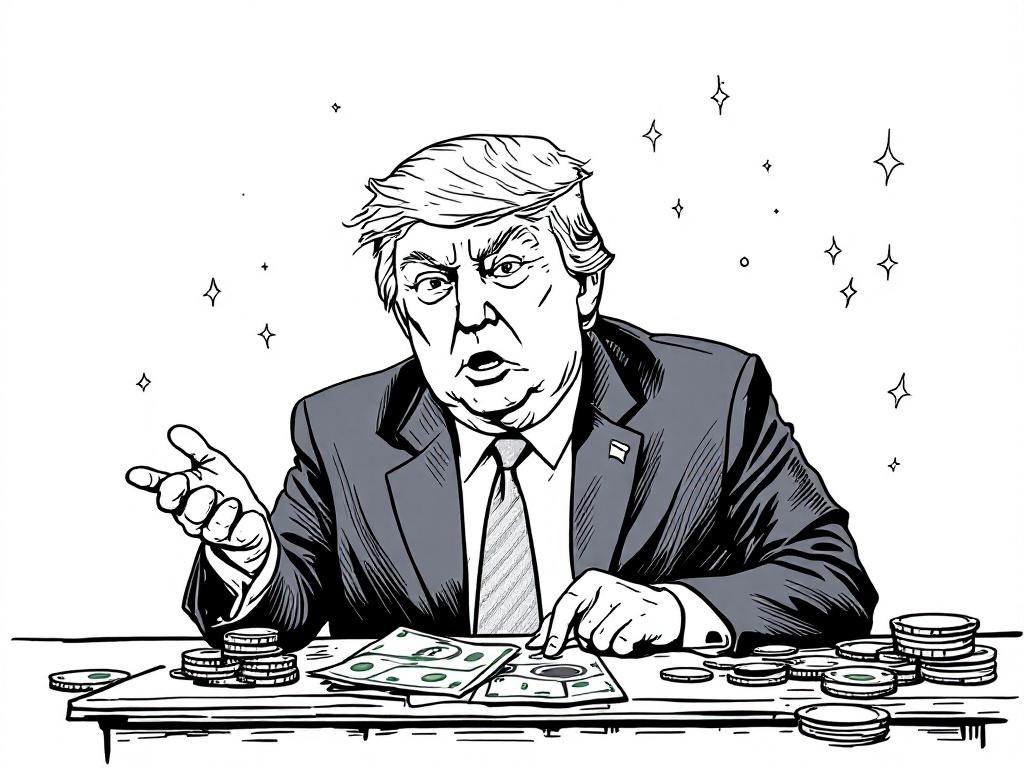Trump’s Criticism of Fed Chair Powell Intensifies Amid Interest Rate Debate

Washington, D.C., Friday, 11 July 2025.
The Trump administration’s escalating feud with Fed Chair Jerome Powell could threaten the Fed’s independence, potentially affecting market stability and investor confidence.
A Heated Battle Over Interest Rates
Amid rising tensions, President Donald Trump and his administration have taken unprecedented steps in their critique of Federal Reserve Chair Jerome Powell. Trump’s dissatisfaction roots back months, as he has consistently pressured Powell to lower interest rates, which he contends are stifling economic growth. Two weeks ago, on 30 June 2025, Trump sent Powell a handwritten letter demanding substantial rate cuts [1]. This ongoing conflict reflects a deeper discontent within the administration, as Trump believes interest rate reductions could significantly alleviate national debt levels projected to increase by $4 trillion [2].
Fiscal Pressure Versus Monetary Independence
The Trump administration’s aggressive push for rate cuts has raised concerns regarding the Fed’s autonomy. The Federal Reserve, historically independent of political influence, faces an unusual challenge as Trump links monetary policy directly to fiscal concerns. On multiple occasions, the possibility of appointing a ‘shadow chair’ to preemptively direct interest rate policies has been floated within political circles, causing unease in the financial world [3]. This maneuver, while not officially sanctioned, underscores the administration’s urgency to control fiscal policy, potentially undermining Powell’s existing term, which expires in May 2026 [4].
Renovation Controversy Stirs Further Debate
Complicating matters, the Federal Reserve is amidst a controversial $2.5 billion renovation of its Marriner S. Eccles Building in Washington, D.C. Criticisms have erupted over perceived ostentatious spending, with OMB Director Russell Vought accusing Powell of misleading Congress about the project’s scale and budget compliance [5][6]. These allegations have been leveraged by the Trump administration to further critique Powell’s management of the Federal Reserve and to question financial oversight practices. The fallout continues to ripple through both political and financial sectors, adding layers to an already tense fiscal environment.
Market Implications and Future Actions
The sustained pressure on Powell to reduce rates has sparked speculation and uncertainty within financial markets. While some Federal Reserve officials have indicated potential support for a gradual rate reduction later in the year, the timing and magnitude remain uncertain [7]. The broader economic implications of premature rate cuts could be substantial, possibly leading to increased borrowing costs for consumers and affecting long-term market confidence. As Trump’s administration continues to challenge Powell’s leadership, the future of U.S. monetary policy hangs in the balance, with potential shifts that could redefine the Federal Reserve’s role and its interaction with presidential directives.
Sources
- www.cnn.com
- www.washingtonpost.com
- www.cnbc.com
- tradingeconomics.com
- www1.ftchinese.com
- guangyancaijing.substack.com
- www.federalreserve.gov